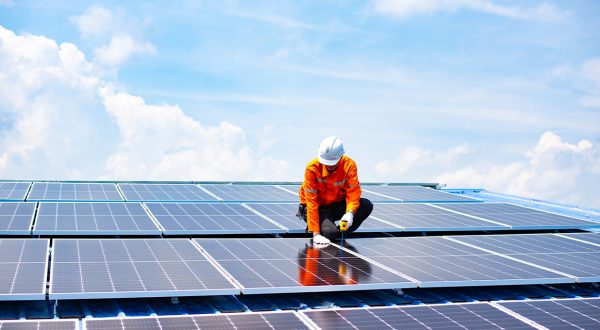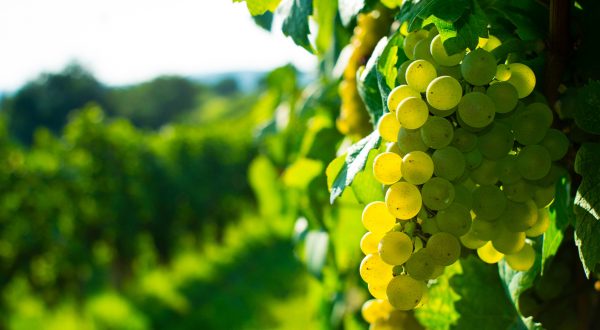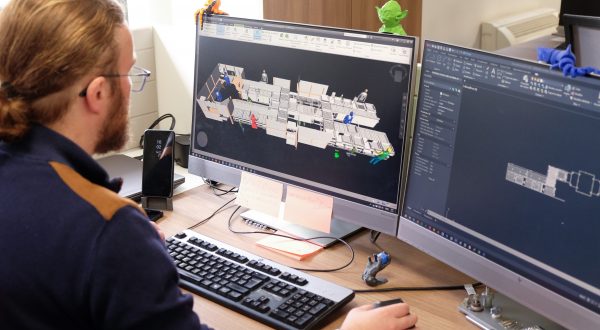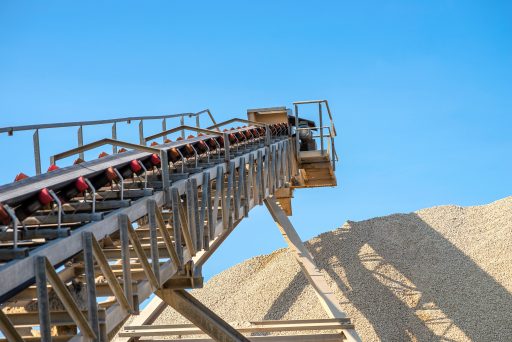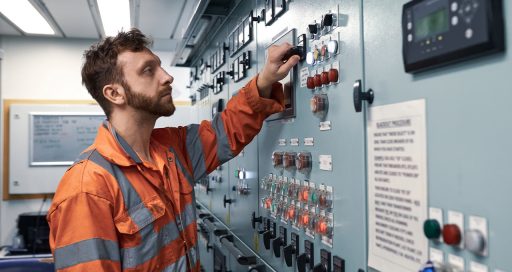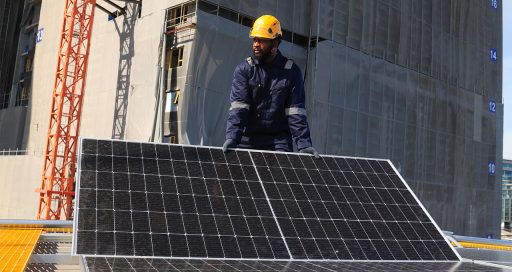Through ecological reorientation agency “vingt & un vingt-deux” (21-22), Vincent Rabaron helps companies, including some VINCI Energies business units, to transition towards a low-carbon economy.
![]()
Each figure in 21-22 has its own significance: 21 stands for two tonnes of CO2 per person per year and one planet with limited resources for all, while 22 represents two global hectares per person and 2°C, the target set to limit the Earth’s average temperature rise caused by the anthropogenic greenhouse effect.
By choosing this name for his new company, founded in January 2020, Vincent Rabaron, previously deputy director of PUR Projet, is clearly setting out his ambition: to accelerate the transition towards a low-carbon economy that takes account of planetary limits.
He plans to do this firstly by working with companies to undertake changes that go far enough in addressing environmental emergency issues. These changes could help to meet the drastic reduction targets that must be achieved this decade and to create value in what will be a low-carbon world. And secondly, by bringing about specific examples of low-carbon business such as “TyVillage”, an ecovillage of reversible tiny homes, and “La Maison”, poorly insulated, energy-intensive homes converted into super-low-carbon co-living spaces following full refurbishment.
“There are a great number of ways in which CO2 can be reduced by working on practices and behaviours. It’s a field that opens up prospects for the VINCI Group in terms of innovations and markets: creating value in the area of energy sufficiency – the concept of having enough but not using too much in relation, for example, to mobility or the use of data, energy, heat, surface areas, or materials – or developing any number of solutions that promote the reuse of materials and technical equipment.
His senior management experience with PUR Projet, which specialises in carbon offsetting through reforestation, inspired him to go further: “Beyond one-size-fits-all solutions brought in from the outside, we realised that it was more powerful to unlock existing potential in the company so as to guide its business model towards the changes that the ecological emergency and planetary limits will gradually impose,” explains Vincent Rabaron.
Changing practices is key
Reorientation cannot stop at simply decarbonising a company’s core business activities or enhancing its energy efficiency. According to this environmental entrepreneur, “the most compelling solutions can often be found in optimising practices and behaviours; energy restraint and sufficiency are areas that have yet to be fully explored and will create new markets for companies like VINCI Energies.”
One of the 21-22 agency’s first clients was in fact VINCI Energies, which knows Vincent Rabaron well as he spent 7 years in the VINCI Group’s construction business line.
“Working with VINCI Energies on such issues is especially interesting since the company is in a position to be a major player in the ecological transition, specifically in three key areas: low-carbon energy, energy efficiency, and optimisation of practices. VINCI Energies business units certainly have what it takes to deliver innovations in this last area,” notes Rabaron.
Street lighting is a case in point: “As well as opting for energy-saving lightbulbs powered by low-carbon energy, lighting can be adjusted to needs thanks to smart management of the lighting network based on the use of illuminated areas. Citeos already uses these methods, and the approach can be applied to other business lines. Indeed, it can be extended to other applications such as mobility, for example by installing bicycle stands and charging points at the foot of lighting columns.”
Building awareness and ramping up skills
Vincent Rabaron addresses these issues through seminars that cover three separate steps. The first phase includes an awareness-building workshop featuring the collective intelligence-based The Climate Collage card game, which helps explain the behaviour and mechanisms of climate change.
The second step involves ramping up participants’ skills in four areas: measuring their business activity’s CO2 emissions, reducing company-specific emissions, committing to a joint approach with leading suppliers, and developing new client services from the ground up with emission reduction in mind.
“For a unit as diversified as VINCI Energies, these activities might result in its VINCI Facilities brand adapting its building energy retrofit services, in the Group’s infrastructure business lines transforming cities through mobility, or in Axians tackling ‘digital sobriety’,” explains Rabaron.
Exploring new opportunities
The boss of 21-22 believes that the highly decentralised organisational structure at VINCI Energies, “which makes it possible to control a human-size and directly operational management area, is of huge benefit in seeing through such an initiative. Coherent action and quick decision-making are key to these types of issues, which can radically transform businesses.”
Vincent Rabaron intends to reorientate companies by focusing on the entire ecological impact chain of their business activity. “The main issue for VINCI is indirect emissions. In fact, we’re helping VINCI’s environment department in this area by looking together at emissions like the consumption of vehicles using network motorways, of planes transiting through airports, and of Eurovia and VINCI Construction structural materials.”
15/10/2020
